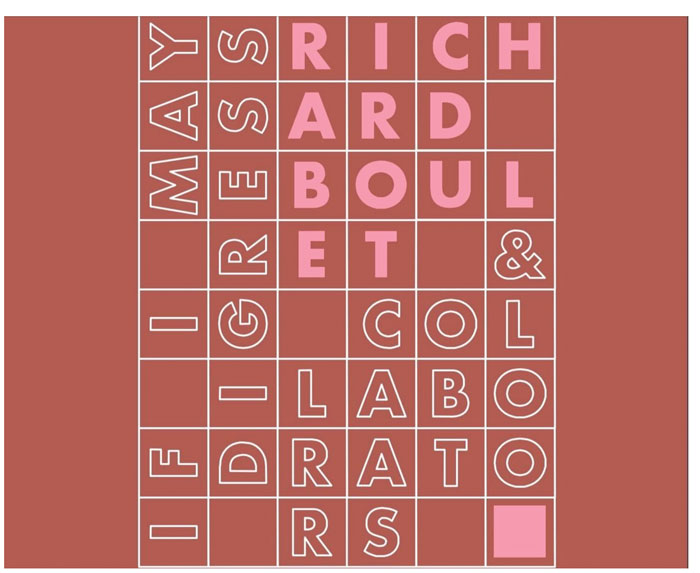From time immemorial women have gathered around fires or family hearths, quilting, embroidering and sewing—creating magnificent crafts to nurture their families and gather strength to face another day. One small stitch at a time, their patient labour made even the most complicated tasks seem possible. “Is this the traditional quiet message behind all the sewing and stitching created by countless mothers for their families?” asks Edmonton-based artist Richard Boulet, whose poetic textiles allowed him to not only survive but flourish.
Boulet’s success story is profoundly inspiring. He walked the hallways of academia and received three degrees, wandered through several Canadian cities in search of shelter, ate in soup kitchens and collected cigarette butts on sidewalks. Eventually, at the age of 33, he was diagnosed with paranoid schizophrenia. Throughout his youth he also struggled with addictions and an LGBTQ identity set against a strict Catholic upbringing. The one thing Boulet never abandoned for long was his art, now featured in If May I Digress: Richard Boulet and Collaborators.
This beautiful catalogue is clearly a labour of love, produced with the aid of public and private funding. Nearly 40 years of Boulet’s art practice are revealed in over 100 illustrations—his first exhibition, held in Winnipeg in 1986; the quilted and cross-stitched banners made during his MFA degree (2006) at the University of Alberta; current collaborations with Marilyn Olson, among others, who work alongside him at the Textile Arts Open Studio at the Canadian Mental Health Association.
The catalogue also features interviews with the artist as well as essays by prominent members of the arts community. The latter are unfailingly insightful but range in accessibility. The introduction particularly drifts into “artspeak”—a term coined to describe overblown language often used to describe visual art. Sentences such as “There is an echo of Moholy-Nagy’s end limit of spatial relations in the complete dissolution of architectural space” seem straight out of artybollocks.com—a site that generates satirical artist statements. That’s a needless loss, as Boulet’s text-based art is erudite but emphatically inclusive. As he says, “If a general art audience feels that my text is quite poetic, reasonably accessible and evocative in terms of an underlying psychology or a social politic I’m putting across, then I know that I’ve come up with a successful piece of writing.”
Despite all that Boulet’s work references—Kenneth Patchen’s concrete poems, collaborative textiles by Judy Chicago, Paul Klee’s children’s-art-inspired paintings—it’s the open-armed warmth that makes his art relatable. Like the domestic crafts that inspire him, his art is profoundly simple yet simply profound.
Agnieszka Matejko is an artist and writer in Edmonton.
_______________________________________


